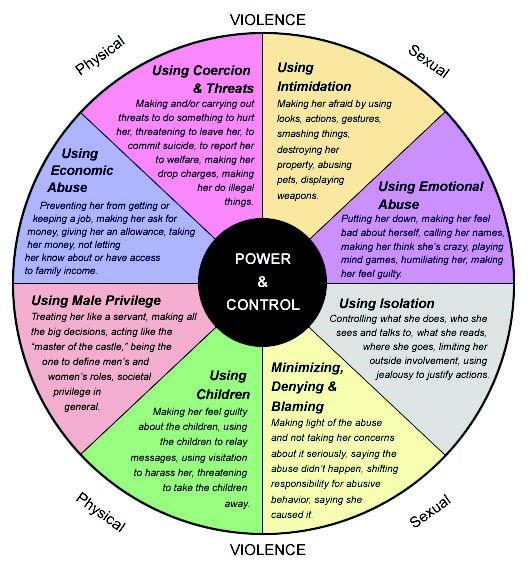A community roundtable revealed painful details about the roadblocks still standing between abused women and their safety at the Native Friendship Centre on Tuesday.
The voices around the table -- about 20 people representing victims, social agencies, government, different age and ethnic brackets, and the regular public -- were kept anonymous to encourage the frankest of statements during the discussion.
The central image to the discussion was the Power And Control Wheel, which depicts the phases of family violence.
"Telling women they have a choice does not sit with them," said one, in response to the notion that an abused woman should simply leave the relationship. "With all of the threats they are faced with, a choice is not on their radar."
Those with firsthand experience said that staff from the Ministry of Children and Family Development (MCFD) often add to the pain.
"You get told 'What are you doing to keep your kids safe?' They are asking the wrong person; ask the man that question," said one. "It is the woman who takes a double hit. She gets the brunt of the violence from her partner and then she gets the brunt of the blame from MCFD."
"The man controls her money. If she leaves, she has nothing," said another.
"Maybe they have a nice house, and maybe it's on an acreage so he can keep her even more isolated, and if she tries to do something about it he cuts the money off. If it goes to court, some men even quit their jobs because 'I'm not ever going to give that bitch any money.'
"And then there are the kids, who still want their Nike and their Xbox and they look at mom who has to say they don't have the money for that anymore. Even if the kids understand, there's a guilt on her shoulders about that. I've seen a lot of women break down under all those pressures and they go back. They go back."
Another participant who has experienced abuse explained the next level of coping many women turn to.
"Cocaine was my lovely friend. I snorted my way through the pain and the fear."
Some said they would even purposefully trigger an outburst of violence knowing it meant getting beaten up, but was usually followed by a short period of better treatment until the man's guilt faded, and the cycle would revolve.
It was agreed there are many social agencies that do effective work, but a true support system did not exist for those abused.
There was a call to build a facility for abusive men so the women and children could stay in the home.
There was vehement acknowledgment at the table that although the focus was on female victims, abuse was also perpetrated by women on men, and was also related to bullying between children, gay bashing, ethnic intolerance, among other anti-social behaviours.
"If you want to make a difference, love your children really, really well," said one. "It sets the standard too high for anyone else to reach."
One person angrily wondered why only about a quarter of the roundtable's participants were men, but another pointed out that meetings of this nature in recent years had no men at all, so gains were being made.
The roundtable was hosted by the Elizabeth Fry Society, RCMP Victim Services and the Native Friendship Centre's Victim Services department. It was part of a suite of activities for National Victims of Crime Awareness Week ending Saturday and Prevention of Violence Against Women Week starting Sunday.



